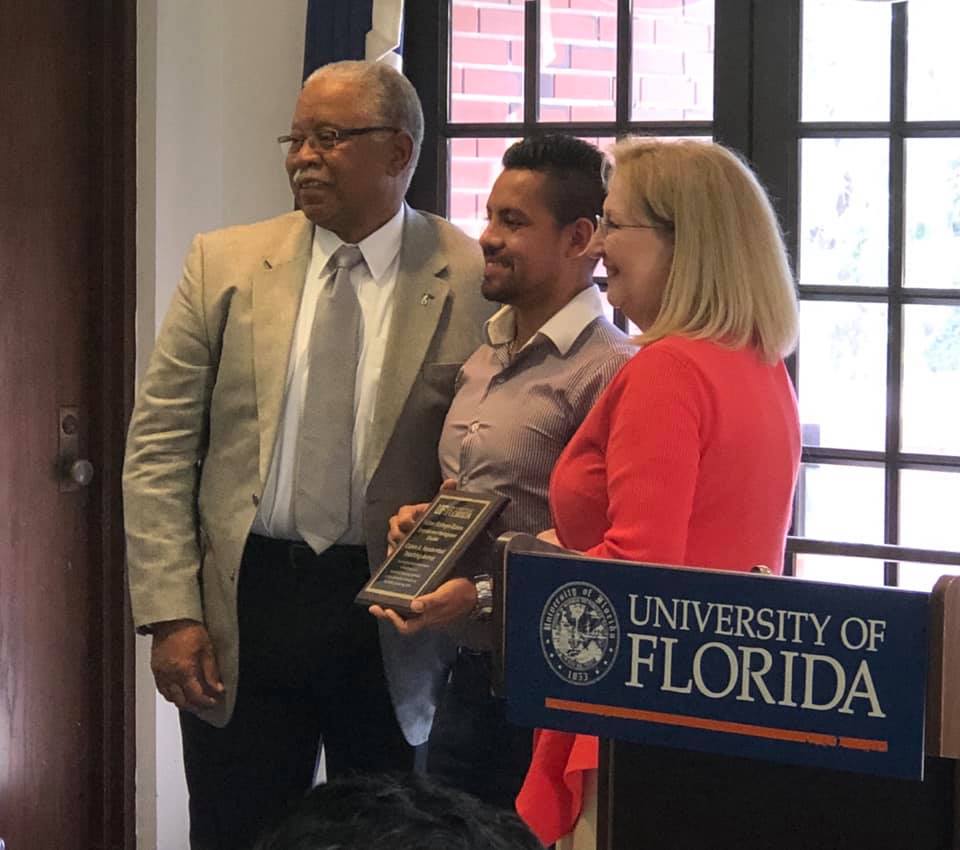Classes
Undergraduate Courses at the College of Charleston
- SPAN 190 Elementary Spanish I
- SPAN 202 Intermediate Spanish
- SPAN 381 Introduction to Spanish Linguistics
- SPAN 445 Spanish Phonetics and Phonology
Undergraduate Courses at the University of Florida
- UFO 1130 Beginning Spanish I - Online
- SPN 1131 Beginning Spanish II
- UF in Barcelona Accelerated Spanish I & II - Program Director
- SPN 2200 Intermediate Spanish I - Honors Section
- SPN 2240 Intensive Communication Skills
- SPN 3324 Livin’ La Vida Caribeña/Conversaciones Caribeñas - Course Developer and Instructor
- SPN 3324 The Spanish Language Detective - Course Developer and Instructor
- SPN 3300 Spanish Grammar and Composition - Honors Section
- SPN 3700 Introduction to Hispanic Linguistics
- SPN 4830 Introduction to Spanish and Spanish American Dialectology
- SPN-EUS 4930 Language Policies in Europe - Course Developer and Instructor
Professional Experience at Indiana University
- HISP 105 and HISP 150 Spanish I & II - Classroom and Online
- Digital Collections Services Quality Control and Translation Specialist
Undergraduate Courses at Minnesota State University
- ENG 381-Introduction to English Linguistics
- ENG 385-Culture and Language for TESL (Online)
- SPAN 301 - NLP for the Spanish Professions
- ENG 101-Foundations of Writing and Rhetoric
Graduate Courses
- University of Florida: Summer 2021-Natural Language Processing for Spanish (Online)
- UniAtlantico: Universidad del Atlántico, Barranquilla, Colombia: Masters Seminar on Comparative Morphosyntax (Online)
- Minnesota State University: SPN 4/501-Natural Language Processing for Spanish (Online)
Project-Based Learning
My teaching approach for content classes is based on project based learning. This teaching strategy consist on fostering learning based on the resolution of real-world problems encapsulated in a semester project, while providing students with a set of 21st century skills for their future careers and professions. For example, in a 4000-level class I taught entitled “Introduction to Spanish and Spanish American Dialectology”, the class explored the linguistic features of the Spanish language varieties of Latin America, Spain, Equatorial Guinea, and United States, while developing data-oriented and critical skills for the careers of my students. I introduced students to dialectometric analysis to visualize and measure dialectal differences through hands-on activities incorporated into a semester-long class project. By associating geographic coordinates in Google Earth with linguistic data containing dialectal features of Spanish varieties, students conducted a dialectometric analysis in Gabmap, an online web application. The results of this class project were presented at a student symposium open to the public and the university community.
I also applied this teaching strategy utilizing three course development grants over the past three years. Thanks to a grant awarded by the Center for European Studies at the University of Florida, I developed a class entitled “Language policies in Europe.” Grounded in Project-Based Learning, students engaged in a small-scale study on language policy research to address complex public problems in a territory where state and minority languages coexist. Students learned how to use Qualtrics for survey data collection and RAWGraphs for convenient data visualization and analytics. Results of the projects were presented in a new student symposium open to the academic community. I was awarded the Calvin A. VanderWerf award, given to graduate students for excellence in teaching at the University of Florida, because of my introduction of computational approaches to the linguistic classroom.
Teaching Awards
Calvin A. VanderWerf For Excellence in Teaching Award (2018-2019) The Graduate School Award for the Highest Ranked Graduate Teaching Assistant at the University of Florida for the 2018-2019 Academic Year.

Upper Division Teaching Award (2015-2016) Department of Spanish and Portuguese Studies, University of Florida.